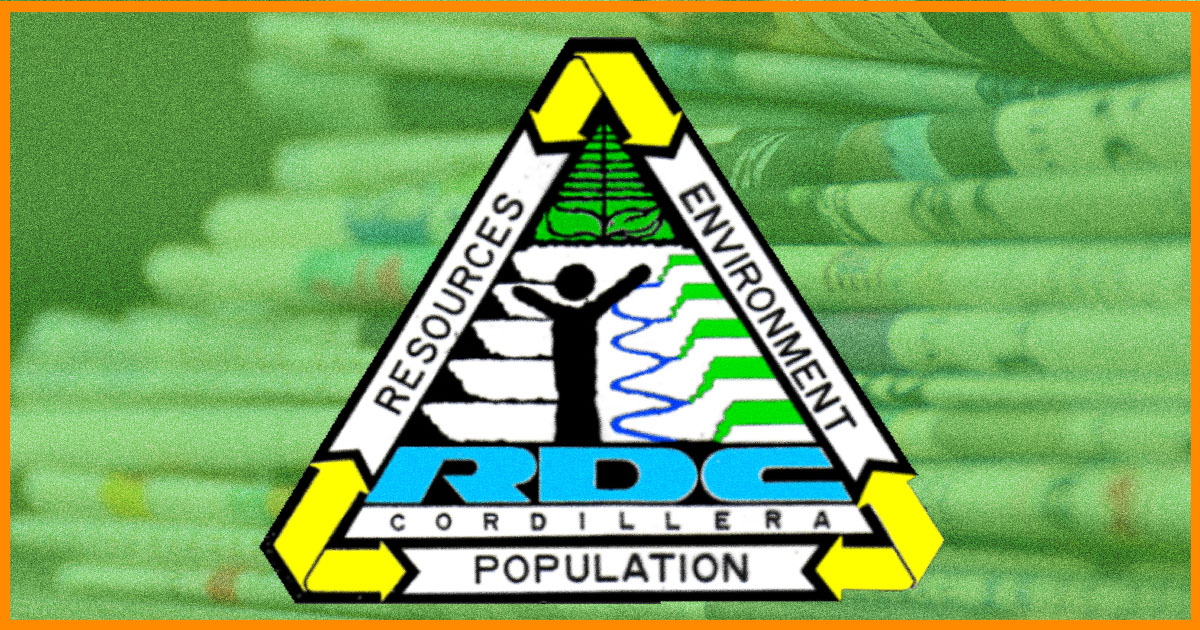Several stakeholders of the region including power generation companies (GenCos), local government units (LGUs) and government agencies participated in the RDC-CAR’s Renewable Energy (RE) Investment Forum held on November 16, 2023. Resource persons from the Department of Energy (DOE), Engr. Ariel Fronda and Ms. Lisa Go, presented the RE scenario including the National Renewable Energy Program 2020-2040 which sets the target of 35% RE share in the energy mix by 2030 and 50% by 2040, and the Energy Virtual One Stop Shop (EVOSS) Act which streamlines the permitting process when developing RE projects. Resource persons from the Public-Private Partnership (PPP) Center, Mr. Agape Sem Comendador and Engr. Mary Rose Santillan, on the other hand, presented the Philippine PPP Program and the PPP Center’s new business model for developing RE and energy efficiency PPP projects.
Two representatives from the GenCos shared their experiences in developing hydropower projects in the region during the afternoon session. Engr. Daniel Peckley Jr. from the DPJ Engineering Consultants shared that among the benefits from undertaking their hydropower project in Tabuk, Kalinga were the provision of employment opportunities, government income with payments to the National Irrigation Administration for the use of irrigation water, real property and national wealth taxes and provision of benefits to host LGUs and the region. Engr. Artemio Bacoco of the Benguet Electric Cooperative (BENECO) highlighted that their 3.24MW Man-asok Hydroelectric Power Plant in Buguias, Benguet aims to provide cheaper energy to improve the living conditions of the host communities and address environmental concerns by reducing greenhouse gas emissions to mitigate global warming and climate change. On concerns of power generating companies, the two speakers identified the lengthy and tedious permitting processes required by the government agencies, particularly on the free prior and informed consent (FPIC) process required by the National Commission on Indigenous Peoples (NCIP), as one of the major challenges in developing hydropower in the region. Opposition of various political and advocacy groups was also identified as a major hurdle in pursuing both small-scale and large-scale hydropower operations in the region.
Governors from the provinces of Ifugao and Kalinga also narrated their experiences in the development of RE projects. Ifugao Gov. Jerry Dalipog shared that two out of the four mini-hydropower plants in Ifugao, Likud and Ambangal hydropower plants, are operated and managed by the provincial government. He said that a problem they are facing, however, is that the local electric cooperative has not paid for electricity supplied by the province based on their Power Purchase Agreement. As a consequence, the power plants cannot operate at full capacity due to lack of expertise among the LGU staff in maintaining and operating the facilities while the province is constrained from hiring additional manpower with its limited funds. In response, the LGU sought the support of the private sector on technical trainings and assistances to maximize the utilization of their hydropower facilities. This highlights the importance of public-private partnership in addressing technical and financial resource gaps in promoting RE.
Kalinga Gov. James Edduba further attested to the challenges of developing RE in the region due to the lengthy and tedious processes to obtain FPIC and permits issued by national government agencies such as the water rights permit from the National Water Resources Board (NWRB). He manifested that as the Watershed Cradle of the North, the national government should support the region in developing its energy potentials as it supplies water to three adjacent downstream regions. “Renewable energy is our number one resource in the Cordillera. It will even preserve the nature of the Cordillera as it will promote the planting of more trees to preserve our watersheds.” he added. As an advocate, Gov. Edduba expressed his sentiment that through regional autonomy, we can facilitate permitting systems and the development of renewable energy in the region.
The sharing sessions were followed by a panel discussion that initiated dialogues between LGUs, GenCos and agencies mandated to issue permits and licenses. Mr. Abeline Cirilo (NCIP-CAR) clarified that some activities in the Work and Financial Plan (WFP) for the FPIC can be done simultaneously by the proponent to meet the prescribed time frame in the EVOSS system of 105 days. He further explained that delays in the FPIC result from the need to ensure community approval by consensus. The FPIC would take longer should the proposed project sites cover multiple ancestral domains or ICCs from different provinces. Another issue raised concerns the lack of full disclosure by proponents in declaring ancillary projects such as installation of transmission lines and construction of access roads that affect indigenous communities. This has an implication on the granting of the Certificate of Precondition or non-coverage as this requires the conduct of validation and consensus-building activities specific to the subprojects. The NCIP representative stated that government agencies and LGUs carefully consider several political and socio-cultural issues regarding the project to ensure that communities involved fully understand the implications of implementing the project. The issues on the application processes under the FPIC shall be tackled during the succeeding meetings of the RDC-CAR Committee on Indigenous Peoples Concerns (CIPC).
On securing water use permits, Assistant Regional Director Benjamin A. Ventura of the Cordillera office of the Department of Environment and Natural Resources (DENR-CAR) informed the participants that the National Water Resources Board (NWRB) is an attached agency of the DENR and has its linkage to the regional offices under the Water Resource Utilization Section of the Licenses, Patents and Deeds Division. Hence, DENR regional offices may provide assistance to proponents applying for water permits. The agency is also currently harmonizing the policies governing water resource management from NWRB, DENR and NIA. ARD Ventura also raised the concern on the 96 hydro projects in CAR presented by DOE where a number of these are situated in forestlands. Occupation of land classified as forest land is a violation of Presidential Decree (PD) 705 or the Revised Forestry Code of the Philippines.
However, he reiterated the DENR’s mandate of assisting project proponents in legalizing their occupation through special land use permits. Liza Canao (EMB-CAR) informed the participants of the processes and screening guide on the issuance of Certificate of Non-Coverage (CNC) or Environmental Compliance Certificate (ECC) required in the environmental assessment of project impacts. It was further explained that compliance to the FPIC and CNC/ECC may be done simultaneously. The participants acknowledged the forum was a start to engaging stakeholders in resolving issues and advancing the renewal energy sector in the region. By Alvin Ryan G. Fernandez
















